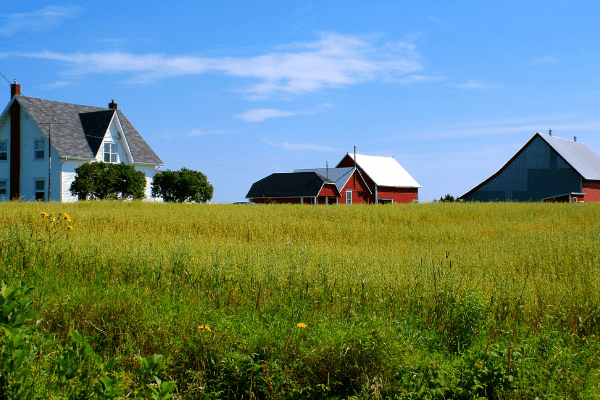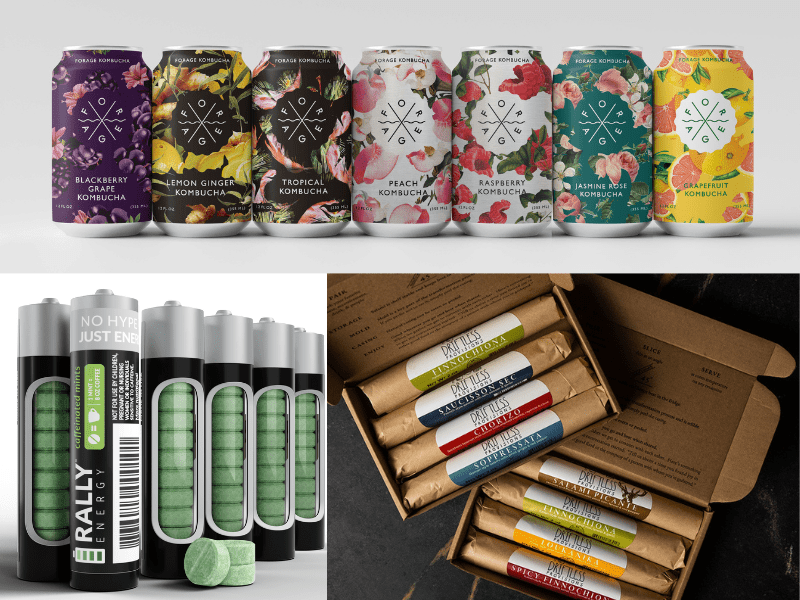According to USDA’s 2017 Census of Agriculture, the average age of the American farmer is 57.5, up from 56.3 in 2012. What’s more, a whopping 34% of U.S. farmers are 65 or older while just 37% are under age 55. This means the vast majority of farmers in our country are either at or coming up on retirement age and likely thinking about what to do with their land, equipment and other assets when the time comes.
For some, it’ll be an easy decision: pass everything off to a child or other family member who wants to continue in agriculture. For many others, however, it’s much more complex. They may not have an obvious successor in the family, or they may need the money they have tied up in land and assets in to live out their years comfortably. Some farmers who opt to sell might even prefer to have a younger farmer keep the operation going, whether within or outside of the family, but feel that liquidating their assets all at once is a faster, easier, less risky way to guarantee their security.
With farmers growing older and land value skyrocketing, experts predict a huge transfer in land ownership in the very near future. American Farmland Trust research shows that 371 million acres—more than 40% of the 991 million acres of farmland in the contiguous 48 states—will change hands over the next 15 years.
But already today, much of America’s farmland is not actually owned by farmers. USDA estimates that 30% is held by nonoperators, including corporations, institutional investors, banks and individual landlords, who lease it out to growers. Because land prices are so high—oftentimes out of farmers’ price range—nonoperator entities will likely snap up an even greater share of arable acreage in the coming decades.
In many ways, these facts and figures paint a grim picture for agriculture’s future, at least for independent family farms and farmer-landowners. But on the flip side, they also signal a whole lot of opportunity.
Census data show that 27% of American farmers are considered new or beginning producers with 10 years or less of agriculture experience, with an average age of 46.3. Many of these folks didn’t inherit land or come from agricultural families. Rather, they feel a deep connection to the land and want to do the hard work to steward it and produce nutritious food for their communities. An increasing number of beginning farmers are committed to organic and regenerative practices.
But, of course, farmland is pricey and getting an ag operation up and running is not cheap. Sure, new farmers can lease land, which some say is the wiser move anyway because it ties up less capital. But leasing can be tenuous and unfavorable to regenerative and organic practices. And besides, many beginning farmers really want to invest in land that’s their own.
Here’s where the older, nearing-retirement set comes in. There are ample opportunities for young farmers to connect with established farmers who want their operations to continue but don’t have a successor in the family. Along with transferring ownership, usually in stages, this older generation can mentor young farmers, sharing decades of acquired knowledge and experience as they work out a transition plan.
Meadowlark Organics’ John and Halee Wepking did exactly this by linking up with longtime Wisconsin farmer Paul Bickford about six years ago. As John shares with Tera on the latest Edible-Alpha® podcast, Paul has mentored and helped them scale up their value-added small grains and grass-fed beef operation while they work toward an eventual 100% farm transition. John also dives into the details of their operation in their Edible-Alpha® Live! business presentation.
On-farm mentorship and transition planning certainly aren’t quick-cash solutions for outgoing farmers. But they are becoming increasingly popular because it allows the next generation to learn and acquire land while ensuring continuity on the farm. It definitely strengthens the outlook for independent organic and regenerative farms in the U.S.
John and Halee Wepking wanted to farm and own their own land, so they learned the ropes from established organic farmer Paul Bickford and mapped out a farm transition plan. While starting their grazing herd, they began growing value-added small grains for local milling and distribution. Leveraging his restaurant experience, John built up a big market for their organic flours, allowing Meadowlark Organics to scale and recently acquire the milling operation. Tune in to hear this inspiring story of diversified agriculture and farm transition!
Listen to the Latest Podcast
And now, our roundup of the best food and beverage finance news, events and resources from around the web…
Business Model Insights
- Become the brand that people remember: How to increase share of market in uncertain times (Nielsen Insights)
Even during a crisis like the COVID-19 pandemic, businesses need to continue investing in their brands—including on advertising, which will companies up for success when life eventually settles into a new normal. - Should brands adjust their products to appeal to a larger consumer base? (New Hope Network)
- Global food commodity prices reach highest level since July 2014 (Food & Beverage Insider)
Raising Capital
- VMG Partners raises $850M for new growth fund (Food Dive)
The opportunity to work with VMG—funder of Kind, Bare Snacks, Pirate Brands, Spindrift and Daily Harvest—would many doors for a startup looking to build its brand and scale its product. - Resources for women-owned natural products businesses (New Hope Network)
- How does the $1.9 trillion stimulus package impact food and farming? (The Counter)
CPG/National Brands
- ‘Urgent Transformation’ Needed Post-Pandemic, CPG Group Says (Winsight Grocery Business)
Making the CPG industry more resilient and trusted by consumers as companies forge their way through the rest of 2021 means making supply chains more agile and decentralized, with more real-time visibility into inventory and consumer-specific data - Brands change products to reduce plastics use—at least a little (New Hope Network)
- ReGrained proves mainstream market appeal for upcycled foods (FoodNavigator-USA)

Market Trends
- Dairy delivers big sales as increased home cooking and baking continue (Supermarket News)
Supermarkets see milk, butter and packaged cheese sales still surging even as COVID restrictions ease - Carbon labeling, promises to be carbon neutral, positive emerge as top trend (FoodNavigator-USA)
- Consumer Surveys: A Continued Look at COVID-19’s Impact on Food Purchasing, Eating Behaviors and Perceptions of Food Safety (Food Insight)

Farming and AgTech
- Small Farmers Are Struggling After the Texas Big Freeze (Civil Eats)
Crop failures, seed shortages, and livestock deaths will have ongoing impacts on all types of farmers—but smaller, diversified farmers are bearing the brunt of a lack of state support. - New Evidence Shows Fertile Soil Gone from Midwestern Farms (NPR)
- Will the CSA Boom Survive Beyond the Pandemic? (Civil Eats)
Deals/M&A
- Let’s make a deal: How Nestlé is using M&A and multibillion-dollar divestitures to shape its portfolio (Food Dive)
With more than $30 billion in transactions since 2018, the world’s largest food company is refocusing its offerings on faster-growing categories popular with consumers. - Deal-making rebounds and increase in exits frees funds for more early stage investments (FoodNavigator-USA)
- Hindsight isn’t 20/20 for natural products industry investment in 2020 (New Hope Network)

Industry Events
Virtual Events
- FFI MVP Series: Sources & Uses of Capital Finance Planning Workshop: 3/18
- American Bakers Association 2021 Virtual Convention: 3/22
- Organic Farmers Association Virtual Advocacy Days: 3/22–3/25
- Global Food Safety Initiative Conference: 3/23–3/25
- Findaway Adventures–Netrush Liftoff Pitch Slam: 3/24
- American Food Sure Virtual Summit: 3/29–3/30
- Edible-Alpha® Consultant Huddle: 4/5
- FFI Scenario Planning: 4/6–4/8
- Plant-Based Foods Value Chain Americas 2021: 4/13 –4/14
- FFI MVP Series: Food Safety & GFSI Planning Workshop: 4/15
- Edible-Alpha® Raising Equity: 4/20–4/22 (NEW DATES)
- Edible-Alpha® + Real Food Brands Brand Strategy Fundamentals: 4/27–429
- Grains Week: 5/3 –5/7
- Edible-Alpha® Meat Processing Boot Camp: Part 1: 5/6–5/7
- Food Safety Summit: 5/11–5/13
- Natural Products Expo West Virtual Week: 5/24–5/27






